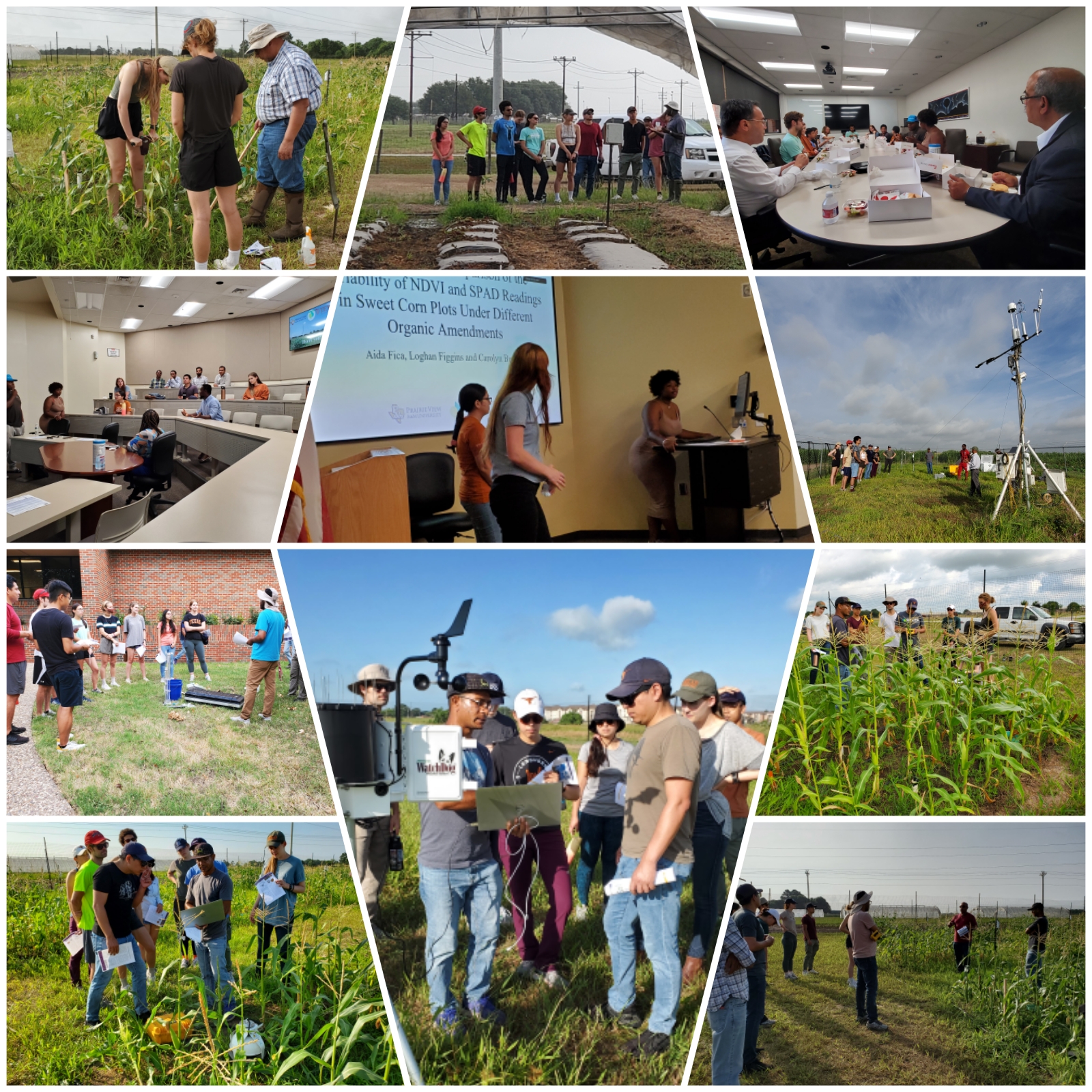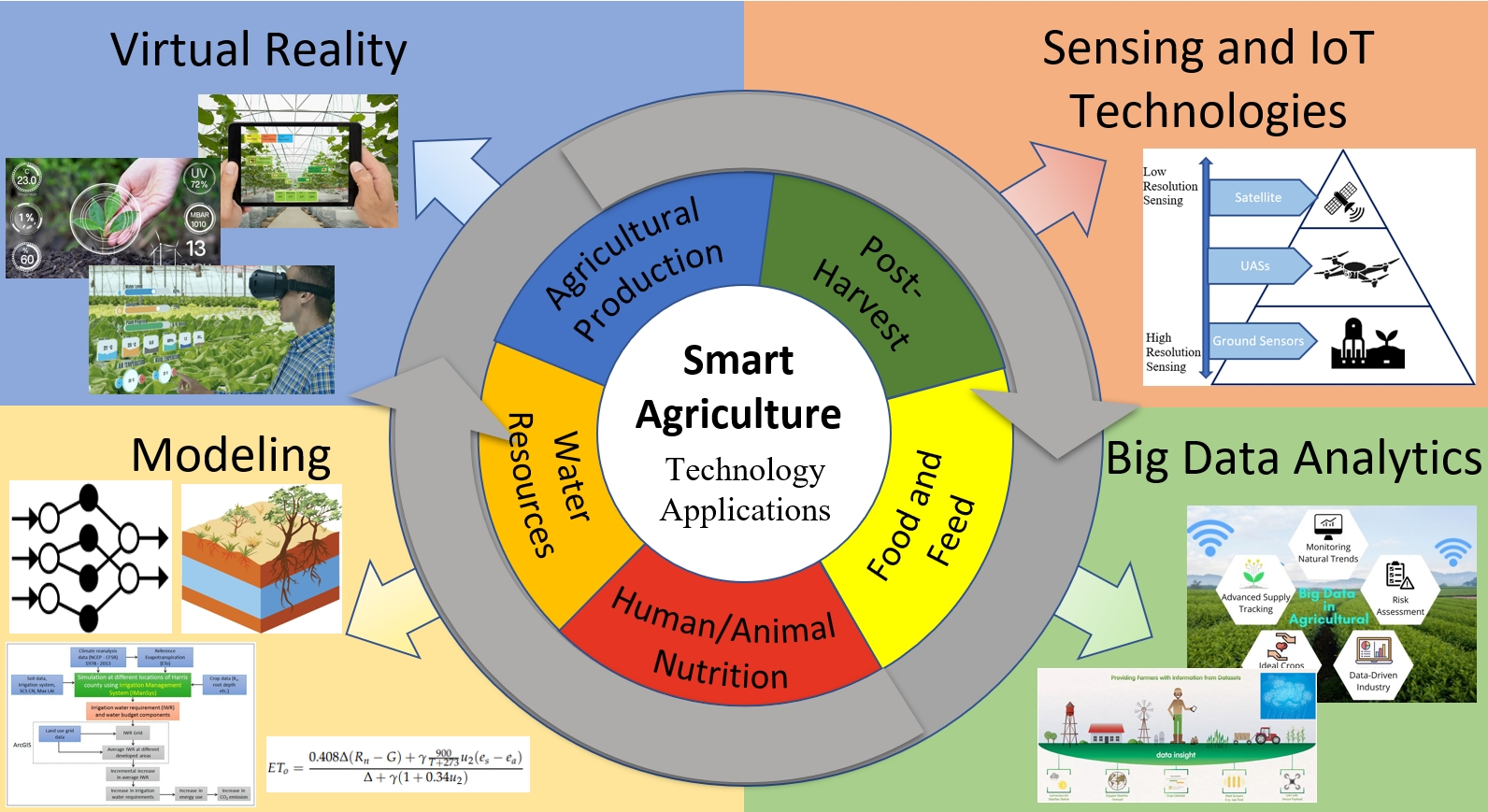

According to the Food and Agriculture Organization of the United Nations (FAO), “climate-smart agriculture is a pathway towards development and food security built on three pillars: increasing productivity and incomes, enhancing resilience of livelihoods and ecosystems and reducing and removing greenhouse gas emissions from the atmosphere.”
Several studies carried out by environmental and ecophysiology scientists show that climate-related disruptions (e.g., floods and droughts) will have a significant impact on water resources, soil health, and agricultural production. Similarly, land use change can impact rural economies, food and water security, and conservation of natural resources. It can create significant challenges related to stormwater management, wildfire protection, flooding, and soil erosion. To be prepared for the effects of these potential impacts across Texas and provide better insight for making decisions related to environmental management of agriculture and natural resources (climate variability and climate extremes, soil health and management, and water quantity/quality), there is a significant need for developing reliable, innovative scientific tools and environmentally sustainable technologies.
We are conducting field experiments with different management practices to increase soil carbon sequestration and greenhouse gas emission. We are developing innovative technologies and techniques (applications/ tools/ sensors) for the environmental management of agriculture and natural resources. Different web and mobile device applications have been developed: (i) IrrigWise: An irrigation scheduling tool using near real-time weather data; (ii) IrrigWise-PRISM: Gridded Climate Data based Irrigation Scheduling Tool for Agricultural Crops and Urban Landscapes in the United States; (iii) IWET: An Irrigation Water Estimator for Texas using historical climate data; (iv) WeatherandSoil: An Android app for site-specific soil and forecasted weather data; and (v) A web-based tool to monitor groundwater in Texas. We develop/use different applications/tools/sensors and Unmanned Aircraft Systems with various sensors to develop and test algorithms for predicting soil moisture, invasive weed species, crop health/stress, and crop yield to support precision agriculture.
